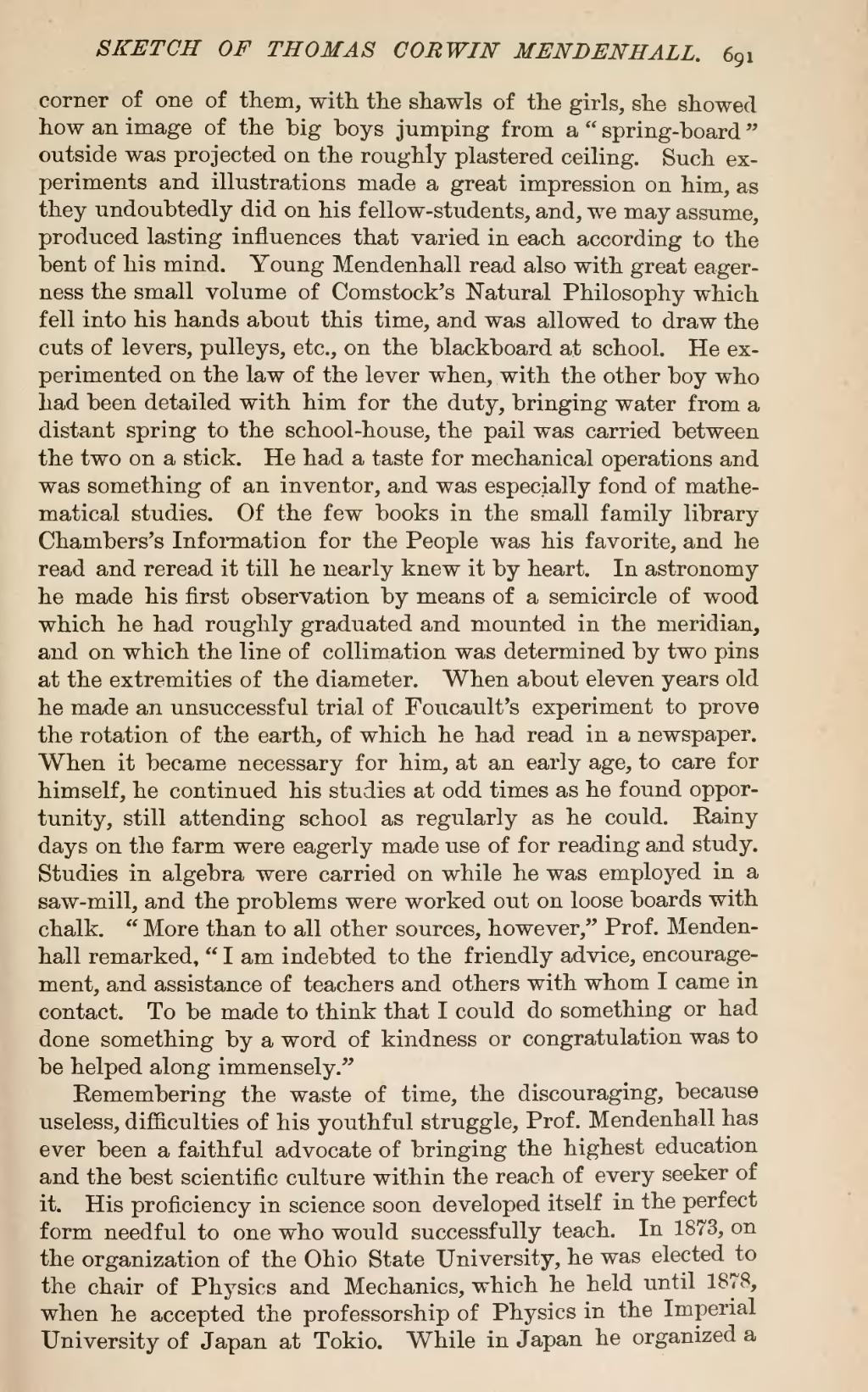corner of one of them, with the shawls of the girls, she showed how an image of the big boys jumping from a "spring-board" outside was projected on the roughly plastered ceiling. Such experiments and illustrations made a great impression on him, as they undoubtedly did on his fellow-students, and, we may assume, produced lasting influences that varied in each according to the bent of his mind. Young Mendenhall read also with great eagerness the small volume of Comstock's Natural Philosophy which fell into his hands about this time, and was allowed to draw the cuts of levers, pulleys, etc., on the blackboard at school. He experimented on the law of the lever when, with the other boy who had been detailed with him for the duty, bringing water from a distant spring to the school-house, the pail was carried between the two on a stick. He had a taste for mechanical operations and was something of an inventor, and was especially fond of mathematical studies. Of the few books in the small family library Chambers's Information for the People was his favorite, and he read and reread it till he nearly knew it by heart. In astronomy he made his first observation by means of a semicircle of wood which he had roughly graduated and mounted in the meridian, and on which the line of collimation was determined by two pins at the extremities of the diameter. When about eleven years old he made an unsuccessful trial of Foucault's experiment to prove the rotation of the earth, of which he had read in a newspaper. When it became necessary for him, at an early age, to care for himself, he continued his studies at odd times as he found opportunity, still attending school as regularly as he could. Rainy days on the farm were eagerly made use of for reading and study. Studies in algebra were carried on while he was employed in a saw-mill, and the problems were worked out on loose boards with chalk. "More than to all other sources, however," Prof. Mendenhall remarked, "I am indebted to the friendly advice, encouragement, and assistance of teachers and others with whom I came in contact. To be made to think that I could do something or had done something by a word of kindness or congratulation was to be helped along immensely."
Remembering the waste of time, the discouraging, because useless, difficulties of his youthful struggle, Prof. Mendenhall has ever been a faithful advocate of bringing the highest education and the best scientific culture within the reach of every seeker of it. His proficiency in science soon developed itself in the perfect form needful to one who would successfully teach. In 1873, on the organization of the Ohio State University, he was elected to the chair of Physics and Mechanics, which he held until 1878, when he accepted the professorship of Physics in the Imperial University of Japan at Tokio. While in Japan he organized a

